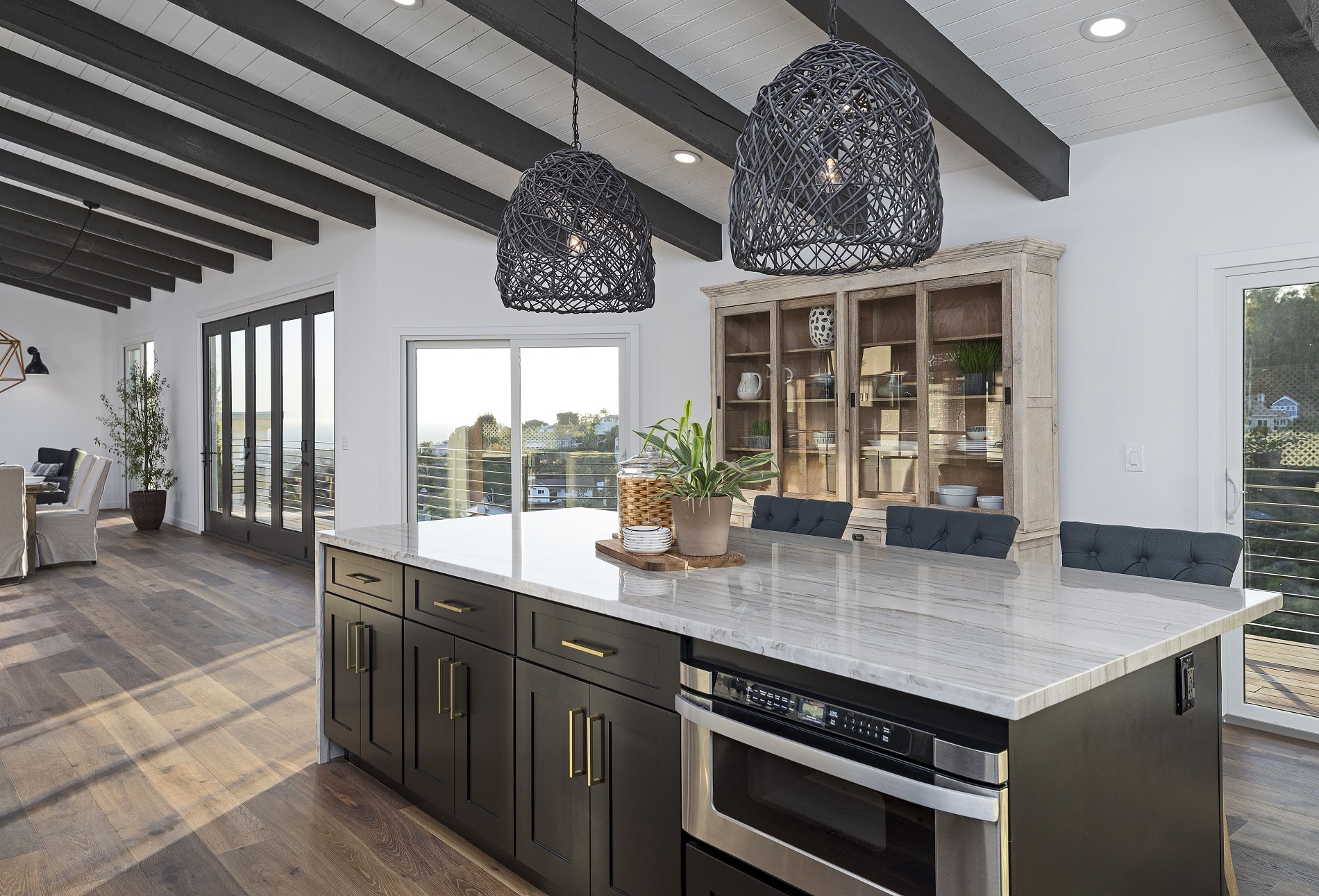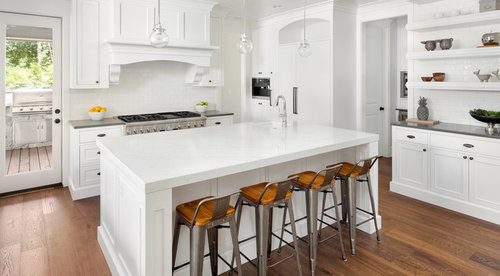When I first considered installing quartz countertops in my kitchen, the question of cost loomed large. Like many homeowners, I wanted to balance aesthetics, functionality, and budget. Quartz countertops, renowned for their durability and elegance, seemed like the perfect fit. However, understanding the cost involves more than just the price per square foot. It includes installation, edge profiles, customizations, and additional factors that can significantly influence the overall expense.
I learned that the price of quartz countertops generally ranges from $50 to $150 per square foot, including installation. The wide range depends on various factors, such as the quality of the quartz, the complexity of the installation, and the region where you live. Premium quartz varieties, often featuring unique colors and patterns, can push the price toward the higher end of the spectrum. Conversely, opting for more common styles can help keep costs down. However, it’s essential to remember that the cheapest option might not always be the best investment in the long run.
One of the initial costs I encountered was the slab itself. Quartz slabs are manufactured from a combination of natural quartz and resins, creating a durable and non-porous surface. Prices for slabs can vary depending on the brand and design. Well-known brands like Caesarstone, Cambria, and Silestone often come with a premium price tag due to their reputation for quality and variety. Additionally, the thickness of the slab can affect the cost. Standard thicknesses are 2 cm and 3 cm, with thicker slabs typically costing more but offering greater durability and a more substantial appearance.
Installation is another significant component of the overall cost. Professional installation is crucial for ensuring that the countertops are properly fitted and secured. This includes templating, which is the process of creating a precise pattern of your countertop layout. Skilled labor is necessary for cutting the quartz to fit your kitchen dimensions, including any cutouts for sinks and appliances. The complexity of the installation, such as the number of seams or the need for custom cuts, can also impact the price. I found that obtaining multiple quotes from reputable installers helped me get a better sense of the reasonable costs for my area.

Edge profiles can also add to the cost of quartz countertops. The edge profile refers to the shape of the countertop’s edges, which can range from simple, straight edges to more intricate designs like ogee or waterfall edges. Each edge profile requires different levels of skill and time to create, with more complex profiles generally costing more. I chose a simple eased edge for a modern look, which was a cost-effective option compared to more elaborate designs.
In addition to the basic costs of materials and installation, there are other potential expenses to consider. If your kitchen layout requires a significant amount of customization or if you have specific design requests, such as integrated sinks or backsplashes, these can add to the overall cost. Moving or modifying plumbing and electrical components might also be necessary during the installation process, which can further increase expenses. It’s important to factor in these additional costs when budgeting for your new countertops.
Maintenance and longevity are important considerations when evaluating the cost of quartz countertops. One of the reasons I was drawn to quartz is its low maintenance requirements. Unlike natural stone, quartz does not need to be sealed, and its non-porous surface resists stains and bacteria. This can save money over time by reducing the need for cleaning products and professional maintenance. Additionally, the durability of quartz means that it is less likely to chip or crack, which can help avoid costly repairs in the future.

I also discovered that the resale value of my home could be positively influenced by the installation of quartz countertops. Kitchens are often a focal point for homebuyers, and high-quality countertops can be a strong selling point. While the initial investment might be substantial, the potential increase in home value can offset some of the costs. This was an important consideration for me, as I viewed the expense as not just a purchase but an investment in my home’s future marketability.
Comparing quartz to other countertop materials helped me better understand its value. Granite, another popular choice, can sometimes be more affordable, but it requires regular sealing and can be prone to staining and cracking. Marble, while luxurious, is more susceptible to scratches and etching. Laminate and solid surface options are cheaper but lack the durability and aesthetic appeal of quartz. Weighing these factors made me more confident in my decision to invest in quartz.
During my research, I also explored eco-friendly options. Some manufacturers produce quartz countertops using recycled materials, which can appeal to environmentally conscious homeowners. These options might come with a higher price tag, but the sustainability factor was an appealing aspect for me. Additionally, the long lifespan of quartz countertops contributes to their eco-friendliness by reducing the frequency of replacements and waste.
I found it helpful to visit showrooms and see the different options in person. This allowed me to get a better sense of the colors, patterns and finishes available. It also allowed me to ask questions and get advice from experts. Seeing the countertops in a real-world setting helped me visualize how they would look in my kitchen and solidified my decision to go with quartz.

Negotiating with suppliers and installers can also yield cost savings. Many companies are willing to offer discounts or promotions, especially if you are flexible with your installation timeline. It’s worth asking about any ongoing deals or potential price breaks for purchasing during off-peak seasons. Building a good rapport with the suppliers and installers can lead to more favorable terms and a smoother installation process.
It’s also important to consider the warranty that comes with your quartz countertops. Reputable brands typically offer warranties that cover defects and issues related to the manufacturing process. Understanding the terms of the warranty and what it covers can provide peace of mind and protect your investment. I made sure to choose a product with a comprehensive warranty, which added to the overall value and assurance of my purchase.
Ultimately, I found that thorough research and careful planning were key to managing the cost of quartz countertops. By understanding the various factors that influence the price and making informed decisions at each step, I was able to achieve the look and functionality I wanted without exceeding my budget. While the process was complex, the end result was a beautiful and durable kitchen countertop that I am proud to have in my home.

Common Mistakes to Avoid
One common mistake is not accounting for all the additional costs associated with quartz countertops. Many people focus solely on the price per square foot and overlook the expenses for installation, edge profiles, and customizations. It’s crucial to get a comprehensive quote that includes all potential costs to avoid any unpleasant surprises.
Another error is choosing the cheapest option without considering quality. While saving money is important, opting for lower-quality quartz can lead to issues down the line. Inferior products might not have the same durability or resistance to stains and scratches, leading to higher maintenance and replacement costs.
Failing to hire professional installers is another mistake. Proper installation is vital for the longevity and appearance of your countertops. DIY installation might seem like a cost-saving measure, but it can result in poor fit, visible seams, and other issues that could end up costing more to fix.

Neglecting to consider the style and design compatibility with your kitchen is a common oversight. It’s important to choose a quartz countertop that complements your existing décor and overall kitchen design. Mismatched styles can detract from the aesthetic appeal and cohesion of your space.
Not researching and comparing different brands and suppliers is also a mistake. Prices and quality can vary significantly between manufacturers, and taking the time to compare options can help you find the best value for your money. Visiting showrooms and seeking recommendations can provide valuable insights.
Ignoring the warranty details is another pitfall. Understanding what the warranty covers and for how long can save you from unexpected expenses if any issues arise. Be sure to choose a product with a solid warranty and familiarize yourself with its terms.
Lastly, not planning for the future can be a costly mistake. Consider how your needs might change over time and how your countertops will fit into those plans. Whether you’re looking at potential home resale value or long-term maintenance, it’s important to think ahead and make choices that will serve you well in the years to come.

How much do quartz kitchen countertops cost on average?
Quartz kitchen countertops typically cost between $50 and $150 per square foot, including installation. The price can vary based on factors such as the quality of the quartz, the complexity of the installation, and the region where you live. Higher-end quartz varieties with unique colors and patterns tend to be more expensive. It’s important to get multiple quotes and consider all associated costs, including installation and any customizations, to determine the total expense.
What factors influence the cost of quartz countertops?
Several factors influence the cost of quartz countertops. The quality and brand of the quartz play a significant role, with premium brands and unique designs commanding higher prices. The thickness of the slab, typically 2 cm or 3 cm, also affects the cost, with thicker slabs being more expensive. Installation complexity, such as custom cuts and edge profiles, can add to the cost. Additional factors include the cost of labor, regional price variations, and any necessary modifications to plumbing or electrical components.
Are quartz countertops worth the investment?
Quartz countertops are considered a worthwhile investment due to their durability, low maintenance requirements, and aesthetic appeal. Unlike natural stone, quartz is non-porous, resistant to stains and bacteria, and does not require sealing. Its durability means it is less likely to chip or crack, reducing the need for repairs. Additionally, quartz countertops can enhance the resale value of your home, making them a valuable long-term investment. The initial cost might be high, but the benefits and longevity often justify the expense.

How can I save money on quartz countertops?
To save money on quartz countertops, consider opting for more common quartz varieties rather than premium options. Choosing a simpler edge profile can also reduce costs. Getting multiple quotes from reputable installers and negotiating for discounts or promotions can help lower the overall expense. Additionally, planning your purchase during off-peak seasons may yield better deals. Ensuring accurate measurements and minimizing customizations can also keep costs down. Visiting showrooms to see available options in person can help you make informed decisions that balance cost and quality.
What are the maintenance requirements for quartz countertops?
Quartz countertops are low maintenance compared to other materials. They do not require sealing and are resistant to stains, scratches, and bacteria. Regular cleaning with mild soap and water is usually sufficient to keep them looking new. Avoid using harsh chemicals or abrasive cleaners that could damage the surface. While quartz is durable, using cutting boards and trivets can prevent potential damage from sharp objects and hot pans. Overall, the ease of maintenance is one of the key advantages of choosing quartz for your kitchen countertops.
How do quartz countertops compare to other materials like granite and marble?
Quartz countertops offer several advantages over granite and marble. Unlike granite, which needs regular sealing to prevent stains, quartz is non-porous and does not require sealing. Quartz is also more resistant to scratches and bacteria compared to both granite and marble. Marble, while aesthetically pleasing, is prone to scratches, etching, and requires more maintenance. Quartz offers a wide range of colors and patterns, often mimicking the look of natural stone. While the initial cost of quartz might be higher than some granite options, its durability and low maintenance make it a cost-effective choice in the long run.

Related articles: